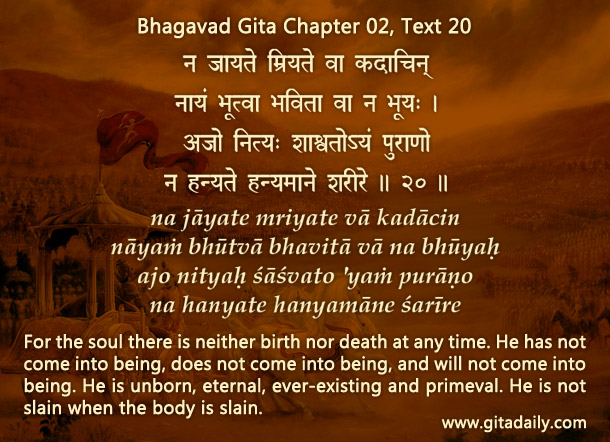Our mortality is perhaps our best-kept secret. It’s a secret not in the sense that it’s not known, but in the sense that it’s hardly ever thought about seriously.
And when we are unavoidably confronted with it, we subconsciously comfort ourselves by thinking that it happens to everyone – we are all in the same boat.
But this is a treacherous comfort – it lulls us into a false sense of complacency without changing the disturbing reality. If the boat is sinking, how does the fact that we are in the same boat help? Maybe some sentimental solace that even in death we are together with our loved ones? But frequently death doesn’t allow us even that solace – it picks on each of us, one by one, leaving the rest, horrified at the sudden disappearance of someone from their midst and anxious to again administer themselves the anodyne of forgetfulness.
But we don’t have to live in denial. Gita wisdom emphasizes that mortality is not our destiny – it is our body’s destiny, but we are souls imperishable and indestructible. The Bhagavad-gita (02.20) asserts that death happens to the body, not the soul.
As long as we identify with our body, we suffer the trauma of death. To the extent we realize our spiritual identity, to that extent we become free from our innate fear of death. What binds the soul to the body is attachment – the desire to enjoy material things. By practicing bhakti-yoga, we can find happiness in our higher spiritual nature, in loving service to Krishna. This devotional happiness gives us the strength to break free from our attachments and thereby helps us rectify our self-conception from material bodies doomed to mortality to spiritual souls destined for immortality.


Leave A Comment